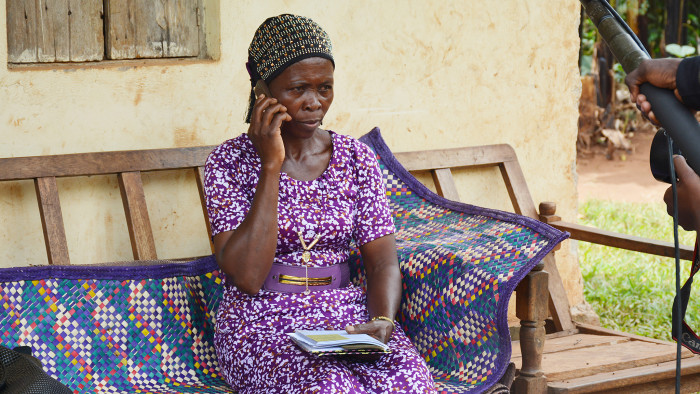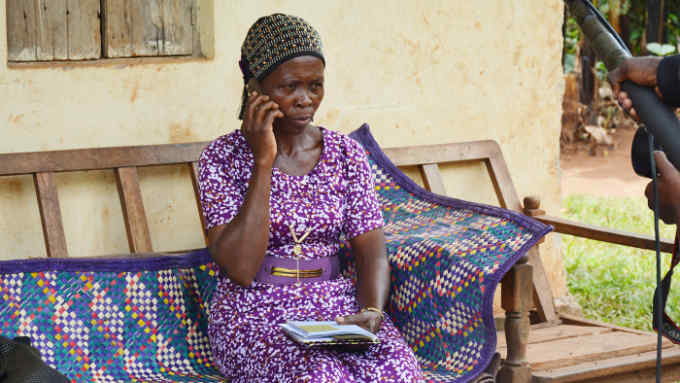Uganda tackles diseases with a phone call

Roula Khalaf, Editor of the FT, selects her favourite stories in this weekly newsletter.
When Dr Rosalind Parkes-Ratanshi started a new job in 2012 at a clinic in Uganda’s capital Kampala, the staff were swamped by 400 HIV patients a day. Many were visiting to collect medication and figured that since they were there, why not see the doctor? With as few as six doctors on duty, the situation was unsustainable.
To thin the queue, staff established a system of digital medical records that can redirect patients to pharmacies or community drug distribution groups. “We leapfrogged from paper to electronic prescriptions,” says Parkes-Ratanshi, who now directs the academy of health innovation at Uganda’s Institute of Infectious Diseases.
Aided by another digital system known as Call for Life, developed by Janssen, Johnson & Johnson’s pharmaceutical arm, the number of daily visitors fell to 120. Call for Life was developed to monitor low-income patients who were prescribed new drugs. “It’s an online platform that we provide with a free licence,” says Theresa Pattery, disease management programme leader at Johnson & Johnson.
Patients receive daily automated calls. “Hello friend,” a soothing voice says as it greets any one of 3,500 patients on their mobile phones. “How are you today? Have you taken your medication?” The patients press 1 if they have and 2 if they have not.
“Would you like to report any symptoms?” the voice continues, as the information is translated into anonymised clinical data and sent to the clinic’s medical records management system. If disturbing data is flagged, the patient receives a call and is asked to come in for assessment.
Johnson & Johnson does not have access to the data. “We have a hands-off approach,” says Pattery. “That’s one of the goals of sustainability: in the country, they should be able to support themselves and expand it further. With us managing everything, that wouldn’t happen.”
For the patients, the call is not over. They can request health tips from an archive of 500 options, ranging from general health and information about HIV drugs to sexual health and advice for new mothers.
Many patients report feeling comforted by the calming voice on the phone — offered in five languages — and the routine check-up. But others, particularly younger patients, can be more resistant.
“Young people are a big worry — adolescent engagement is different, you can’t use the same tech as with the older population. They are less tolerant when the calls break up and are also not as rigorous at taking their medications regularly,” Parkes-Ratanshi says.
Yet doing so means patients can keep their sexual partners healthy and save lives. Pattery explains: “If you are taking your medication and your virus is completely suppressed, you would not transmit the infection to another person, thereby preventing new infections.”
This is a particular concern in the Kalangala islands in Lake Victoria, the next target of an intervention from Johnson & Johnson. The team is developing a drone system to deliver antiretroviral drugs to the fishing communities of the islands, who suffer from the highest HIV infection rates in the country: 30 per cent of new infections compared with the mainland’s 6 per cent.
Call for Life is also being deployed with tuberculosis patients and has been adapted to help locate incoming travellers who may have Covid-19. At first, the ministry of health sent out a nurse to monitor people in their homes for 14 days, which was expensive and logistically challenging. It also endangered the nurses’ health.
Using Call for Life meant returning travellers could receive phone calls asking: “This is a message from the ministry of health. Do you have a cough? Do you have a fever? Are you suffering from shortness of breath? Do you have a sore throat?” Positive responses are flagged, and a medical worker is sent to swab the patient. If recipients answer no to all questions, the voice responds: “OK. Thank you so much. Please stay in self isolation, we will call you tomorrow.”

Comments